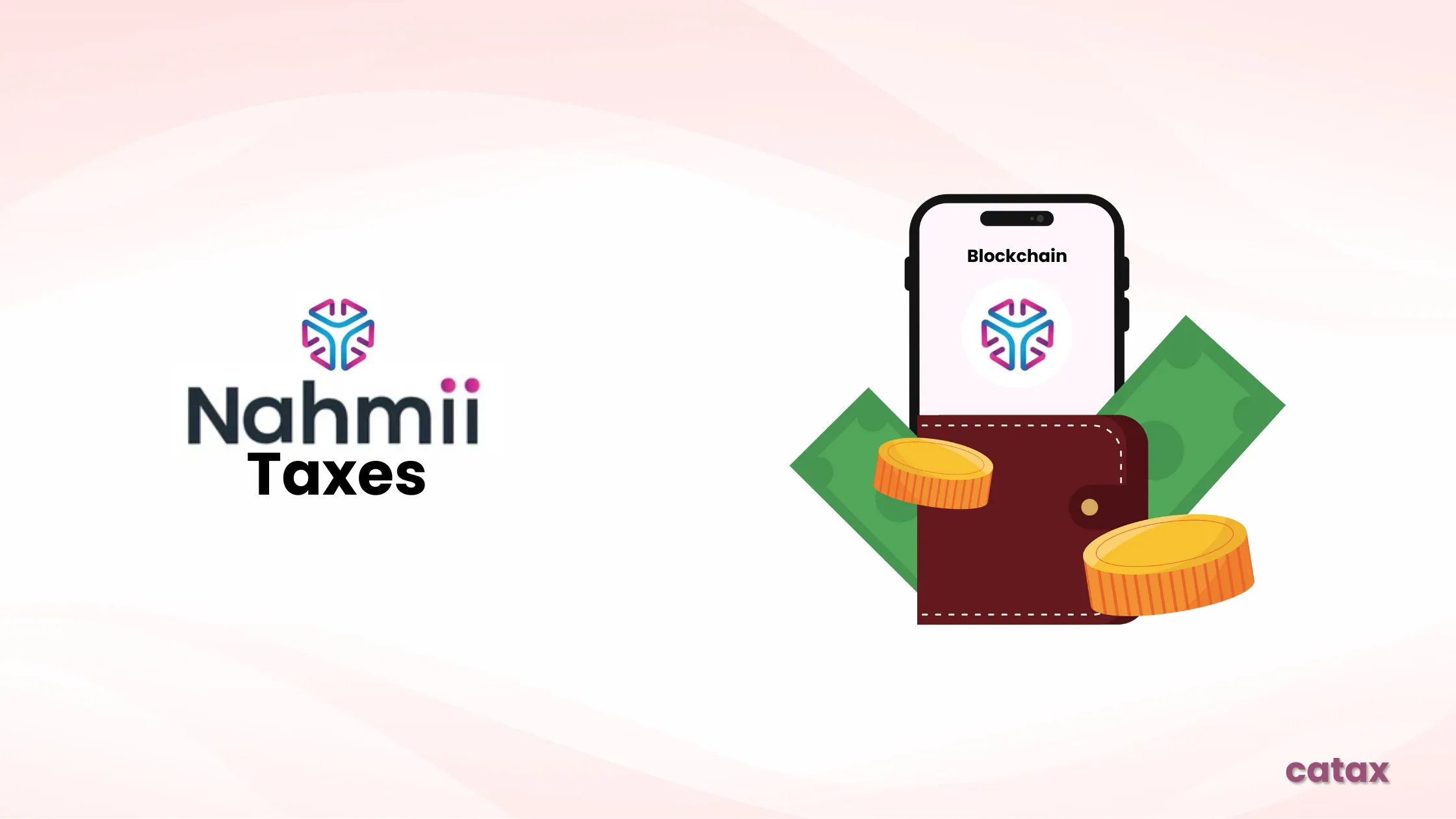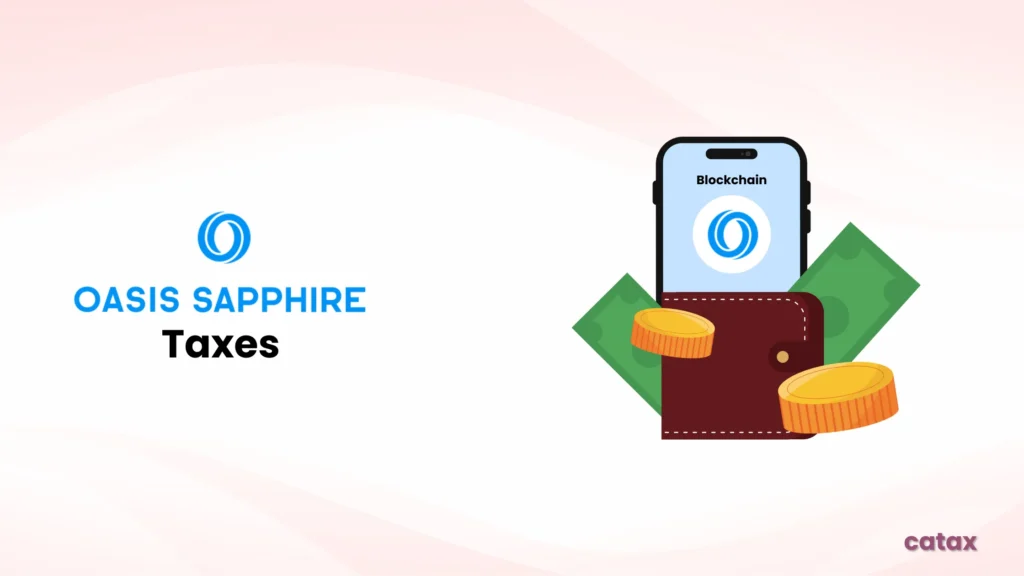Cryptocurrency tax rules vary by country, and Nahmii (NII) taxes transactions may be taxed differently based on local regulations. Whether you buy, sell, trade, or stake NII, understanding how tax authorities classify these activities is key to staying compliant and avoiding penalties.
This guide simplifies Nahmii tax rules so you can manage your taxes with confidence and remain on the right side of the law.

How to Connect Your Nahmii Wallet to Catax?
To track your Nahmii (NII) transactions and calculate taxes easily, follow these simple steps to connect your wallet to Catax:
- Open your Nahmii wallet or use a block explorer (such as MetaMask, Ledger, or any compatible wallet).
- Copy your public wallet address from the Nahmii wallet.
On Catax:
- Log in and select your country.
- Select Chain, then search for Nahmii Wallet.
- Paste your public address and click Connect.
Once connected, Catax will automatically track your NII transactions and simplify your crypto tax reporting.
Calculate My Taxes ➤Are Nahmii Transactions Taxable?
Yes, in most jurisdictions, Nahmii (NII) transactions are considered taxable. Depending on how NII is used, tax authorities may classify it as property, capital assets, or income.
When Do You Have to Pay Taxes on Nahmii (NII)?
You may owe taxes in the following situations:
- Selling NII for a profit – Gains from selling NII for more than its purchase price are typically subject to capital gains tax.
- Trading NII for another crypto – Swapping NII for Bitcoin, Ethereum, or any other cryptocurrency is often a taxable event.
- Using NII for purchases – If you use NII to buy goods or services and its value has increased since acquisition, the gain may be taxable.
- Earning NII through staking or rewards – NII earned via staking or other protocols is usually taxed as income when received.
- Receiving NII as payment – If you’re compensated in NII, it’s typically taxed as income based on the market value at the time of receipt.
Always consult your local tax authority or guidelines to understand how NII is taxed in your country.
Can You Deduct Trading Fees and Other Costs?
Whether or not you can claim deductions for expenses related to managing or trading Nahmii depends on your local tax laws.
Some jurisdictions allow deductions for:
- Trading fees on NII purchases/sales
- Network/transaction fees when transferring NII
- Security costs (like hardware wallets or key management services)
Others may only allow:
- The cost basis of acquiring NII, excluding additional fees.
Review your country’s crypto tax policies for exact deduction rules.
How Is Nahmii (NII) Taxed Based on Holding Period?
Your holding duration can influence your tax rate:
- Short-term holdings (<1 year): Typically taxed at your standard income tax rate.
- Long-term holdings (1+ year): May qualify for lower capital gains tax rates in some countries.
- Flat-rate systems: Some countries apply a fixed tax rate regardless of how long you’ve held the asset.
Understanding your national tax structure can help minimize liabilities and optimize your crypto investment strategy.
You can also check out our Country-Specific Guide for Crypto in Your country. This guide provides insights on regulations, tax implications, and compliance measures breifly explained for each country.
How Is Staking Income Taxed?
Nahmii (NII) staking rewards provide passive income, but taxation depends on your country’s crypto regulations. Some countries tax staking rewards the moment you receive them, while others wait until you sell or convert them.
How Countries Tax Staking Rewards
- Taxed as income – In some jurisdictions, NII staking rewards are taxed like regular income when received, based on their fair market value.
- Taxed as capital gains – Other countries only apply taxes when you sell the rewards, taxing only the profit at that point.
If you’re staking NII, it’s important to know your country’s tax start point to plan and stay compliant. Some countries apply taxes even if you haven’t sold the tokens.
To avoid surprises, check how NII staking rewards are taxed in your region before you begin.
Can You Claim Nahmii Losses for Tax Benefits?
Not all NII investments are profitable. Selling NII at a loss may help reduce your overall tax liability. Here’s how different countries handle crypto losses:
- Loss offsets – Some tax systems allow you to subtract Nahmii losses from your gains, so you’re only taxed on net profits.
- Loss carryforward – If you don’t have any gains this year, certain countries let you carry losses forward to offset future tax years.
- Limited deductions – Some governments don’t allow crypto loss deductions, so your NII losses may not reduce your tax bill.
Keeping accurate records of all transactions ensures you can report losses correctly and benefit from deductions where available.
How to Stay Compliant with Nahmii (NII) Tax Rules?
Crypto tax rules are evolving quickly, so staying updated is key. To avoid issues:
- Know your country’s tax classification for NII – Are rewards and gains treated as income, capital gains, or business income?
- Maintain clear records – Track all NII activity, including buys, sells, trades, staking, and transfers.
- Use a crypto tax tool like Catax – Catax makes it easy to track Nahmii transactions, calculate taxes, and generate reports.
- Consult a tax expert – When in doubt, seek advice to stay compliant with your local tax regulations.
Being informed and organized helps you manage Nahmii taxes accurately and responsibly.
Book a Free Consultation Now →

